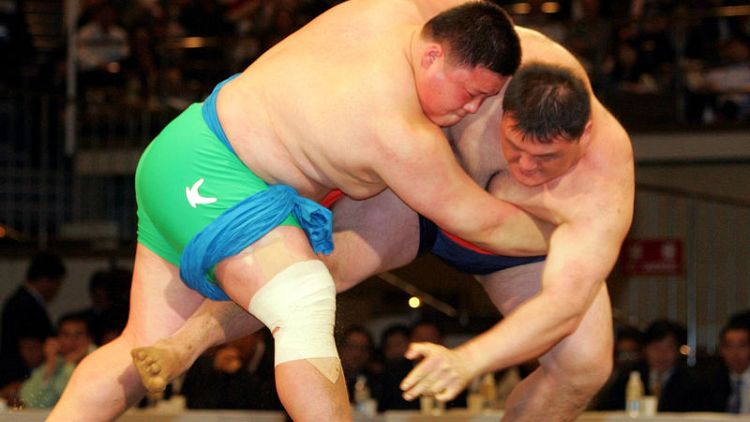By John Irish
PARIS (Reuters) - A full peace deal between North and South Korea may remain elusive, but the neighbours took a cultural step forward on Monday when they joined forces to get their ancient wrestling tradition onto a U.N. list of cultural treasures.
Ssirum in North Korea or Ssireum in South Korea has a history stretching back around 1,800 years, but still draws huge audiences with national and international contests broadcast on television.
On Monday, the sport was added to the U.N. cultural agency's list of so called "intangible assets" after a month of shuffle diplomacy by UNESCO between North and South Korea, both of whom initially made separate bids.
"This joint inscription marks a highly symbolic step on the road to inter-Korean reconciliation. It reminds us of the peace-building power of cultural heritage," UNESCO chief Audrey Azoulay said.
The cultural diplomats had to get round a few obstacles - including a letter's difference in the transliteration of the sport's name into English.
But the countries eventually settled on the classification: 'traditional Korean wrestling (ssirum/ssireum)' - with the North's version listed first as it had made the first application.
TENSIONS
The entry describes it as a contest in a circular ring, where the wrestlers start by kneeling and grabbing a belt - known as a satba or satpa - wrapped around the opponent's waist and thigh.
The winner is the first to force "the other contestant to touch the ground with any part of his body at knee level or higher," reads the officially agreed description.
Tensions over North Korea's tests of nuclear weapons and ballistic missiles spiked on the Korean peninsular last year and there were fears of a U.S. military response to North Korea's threat to develop a weapon capable of hitting the United States.
Talks in June between U.S. President Donald Trump and North Korean leader Kim Jong Un have allayed those concerns, and a detente between Pyongyang and Seoul has opened the door to closer ties.
"We're at a point where sanctions are still in place, we can't move forward on economic questions and much remains blocked. So in areas where UNESCO works, which aren't subjected to sanctions, we can push ahead quickly and with determination," said a UNESCO source.
The two nations have indicated they want to focus on what they can work together on, from heritage sites to education and science to sport, the UNESCO official said.
"UNESCO is ready to play a supporting role," the source added.
(Reporting by John Irish; editing by Richard Lough and Andrew Heavens)
